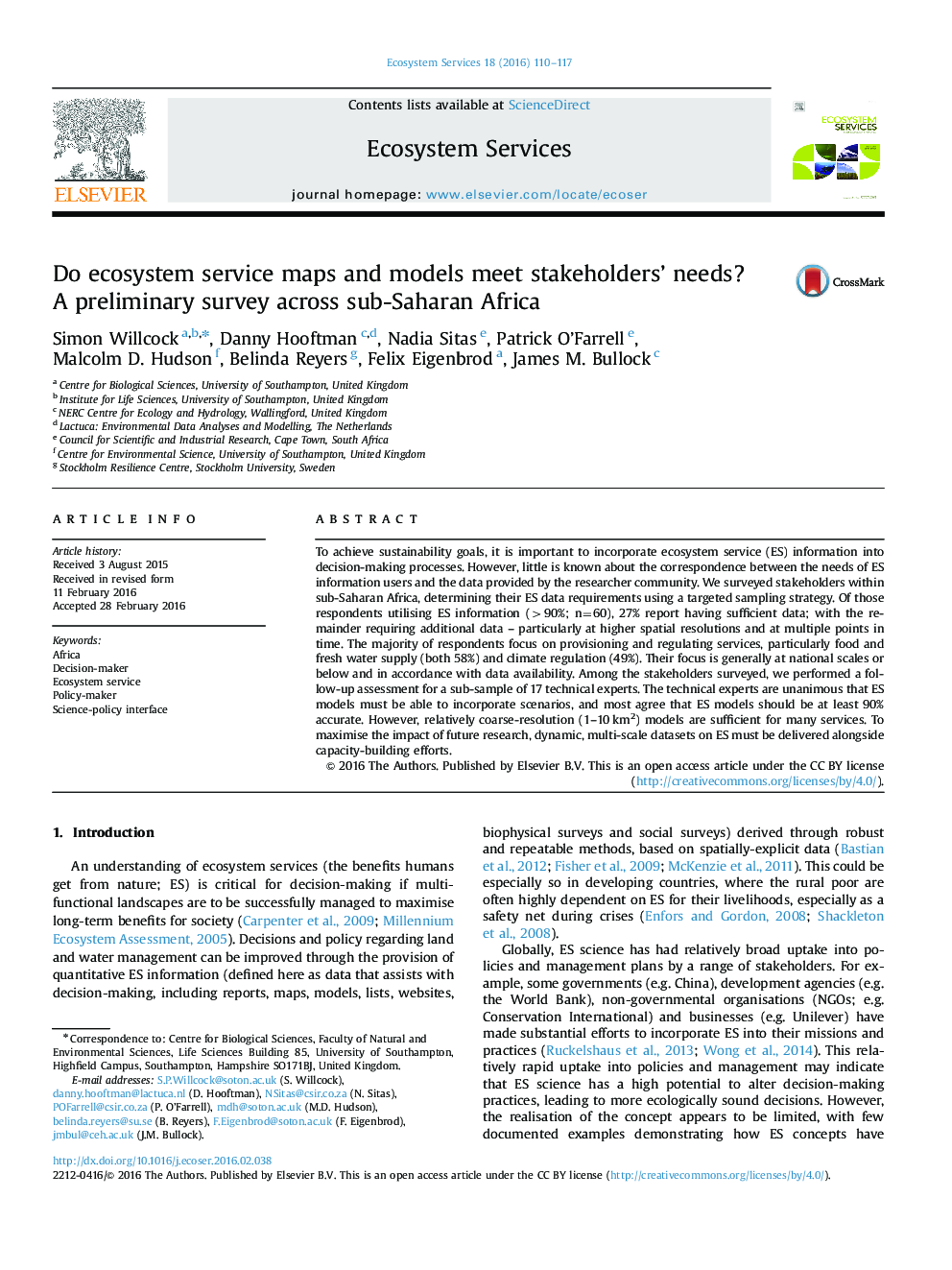| Article ID | Journal | Published Year | Pages | File Type |
|---|---|---|---|---|
| 6556586 | Ecosystem Services | 2016 | 8 Pages |
Abstract
To achieve sustainability goals, it is important to incorporate ecosystem service (ES) information into decision-making processes. However, little is known about the correspondence between the needs of ES information users and the data provided by the researcher community. We surveyed stakeholders within sub-Saharan Africa, determining their ES data requirements using a targeted sampling strategy. Of those respondents utilising ES information (>90%; n=60), 27% report having sufficient data; with the remainder requiring additional data - particularly at higher spatial resolutions and at multiple points in time. The majority of respondents focus on provisioning and regulating services, particularly food and fresh water supply (both 58%) and climate regulation (49%). Their focus is generally at national scales or below and in accordance with data availability. Among the stakeholders surveyed, we performed a follow-up assessment for a sub-sample of 17 technical experts. The technical experts are unanimous that ES models must be able to incorporate scenarios, and most agree that ES models should be at least 90% accurate. However, relatively coarse-resolution (1-10Â km2) models are sufficient for many services. To maximise the impact of future research, dynamic, multi-scale datasets on ES must be delivered alongside capacity-building efforts.
Related Topics
Life Sciences
Agricultural and Biological Sciences
Agricultural and Biological Sciences (General)
Authors
Simon Willcock, Danny Hooftman, Nadia Sitas, Patrick O'Farrell, Malcolm D. Hudson, Belinda Reyers, Felix Eigenbrod, James M. Bullock,
